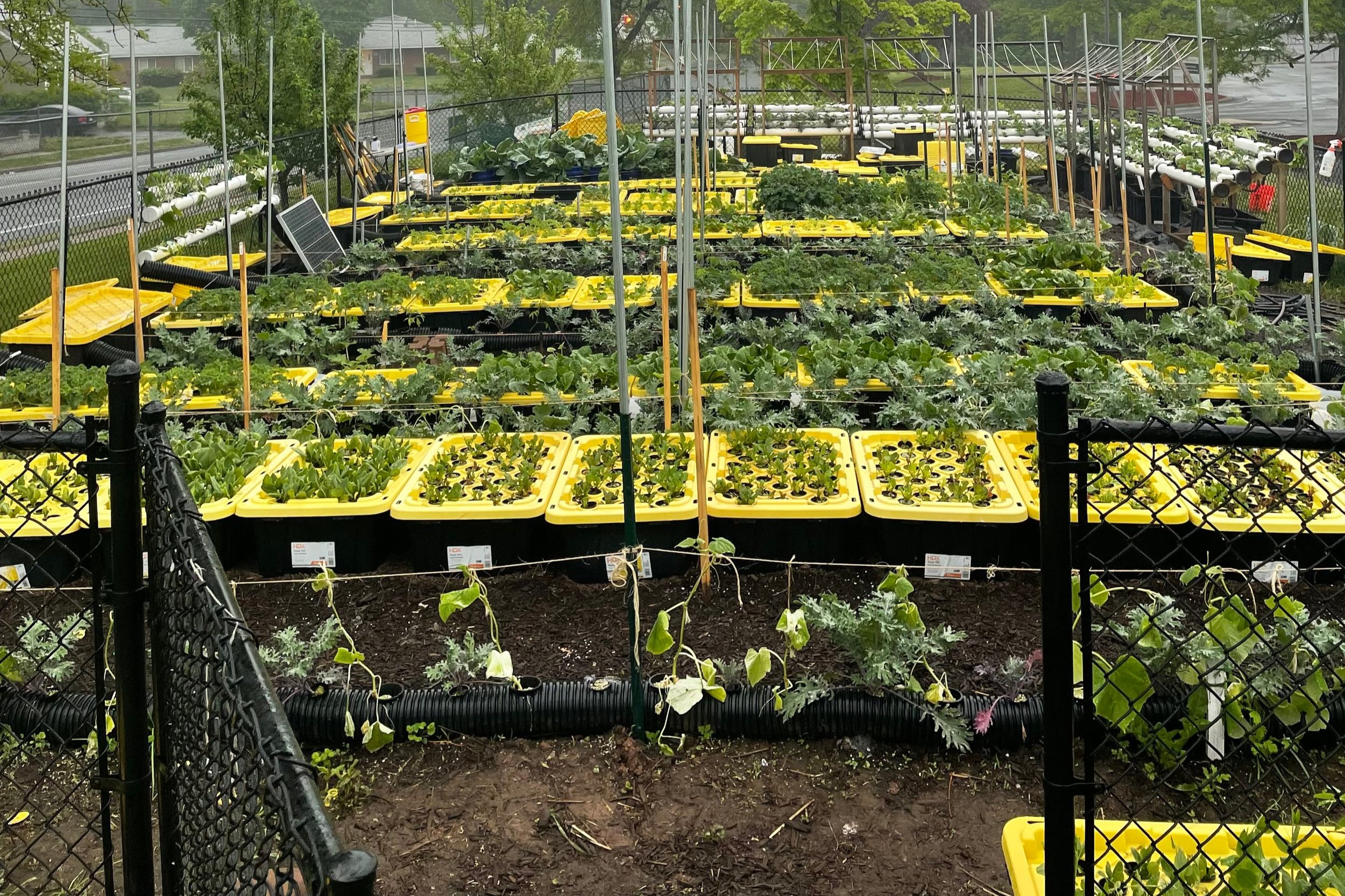Hydroponic Farming
What is Hydroponics?
Hydroponics is farming without soil. Plants in hydroponics grow in nutrient rich water. The water contains all the nutrients the plants need perfectly. Plants therefore don’t need to break soil down or compete with neighboring plants. That energy is used instead of growing upwards, allowing for faster growth. Plants also grow closer together, meaning you get substantially more per square foot.
Advantages of Hydroponics
Easy to test and adjust PH and nutrients
Plants tend to like their Ph between 6-6.5
Up to a 30% increase in production
When you have perfect growing conditions, you have bigger plants.
75% less space than traditional farming
All the plants get equal access to water and nutrients
Plants grow up to 25% faster
Faster nutrient uptake from the nutrient solution means faster growth!
90% less water than traditional farming
No evaporation or run-off means plants only use the water they need!
Consistent Planting Schedule
No reliance on soil means you can grow the same plant in the same place every year.
What is simplified hydroponics?
Hydroponics is traditionally expensive. It requires significant capital, experience, and upkeep money. By not controlling as many variables, such as humidity, temperature, and exact nutrient levels, you can cuts costs and complexity significantly. This simpler approach is called, “simplified hydroponics”. This approach provides soil-free farming at an affordable price point. So affordable that Levo uses it to provide permanent food security for those living in extreme poverty.
What Does levo use?
Levo is currently developing two different types of simplified hydroponic systems.
The Babylon: Nutrient Film Technique (NFT)
NFT was approach Levo developed. NFT circulates water from the reservoir through a cascading system of pipes, providing oxygen rich water to the plants. Levo’s NFT, the Babylon system, is built from locally obtained pvc and steel. These compact systems are capable of growing a large variety of crops with the correct level of training. Each Babylon system holds up to 40 plants, maximizing production per square foot far beyond what is possible with traditional farming methods. The increased production and reduced water create a versatile solution, which will allow the Babylon system to have an impact on a global scale. If you are interested in purchasing a Babylon system, please check out our Victory Gardens.
The Bokit: Non-circulating System
The Non-circulating System (NC) remove most of the complexity of hydroponic farming. Levo is developing solutions using non-circulating hydroponics, particularly for urban settings. NC involves simply placing a plant’s roots in a reservoir that a plant needs in its entire growth cycle. This system removes the need to circulate the water and traps the oxygen inside the reservoir.
The Bokit allows for a simple introduction to hydroponics that Levo is using in communities in both Haiti and the United States.
Data Sources
Resh, Howard M, Hydroponic Food Production: A Definitive Guidebook of Soilless Food-growing Methods : For the Professional and Commercial Grower and the Advanced Home Hydroponics Gardener. Mahwah, N.J.: Newconcept Press, 2004
Jensen, M. H. (1997). Hydroponics, HortScience HortSci, 32(6), 1018-1021. https://journals.ashs.org/view/journals/hortsci/32/6/article-p1018.xml. Retrieved Apr 2, 2019









